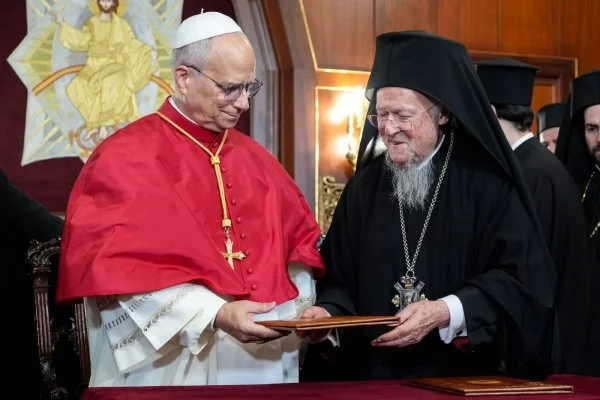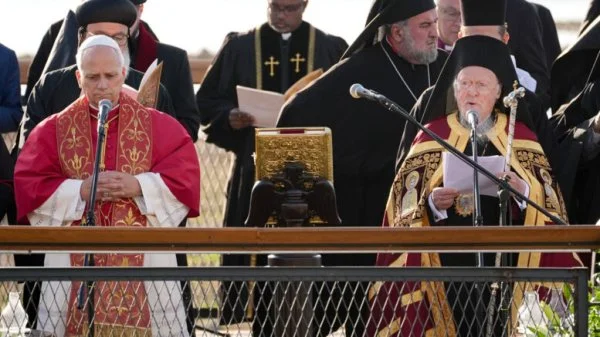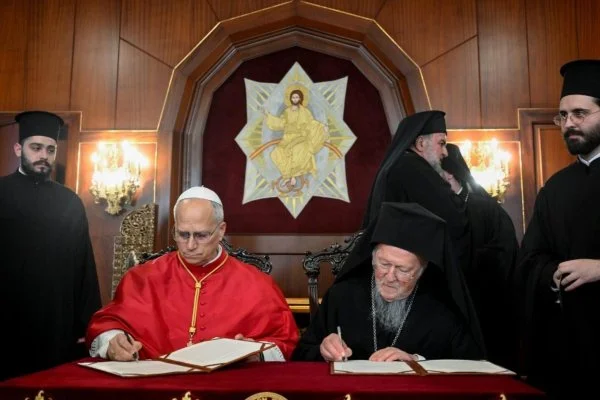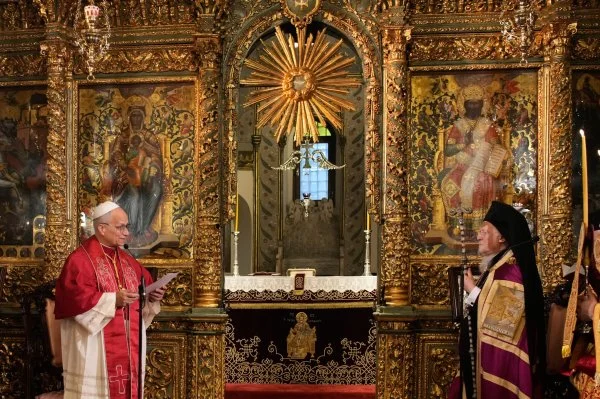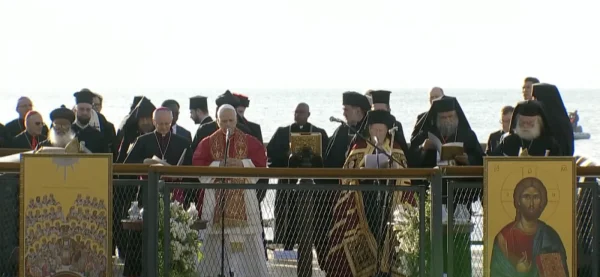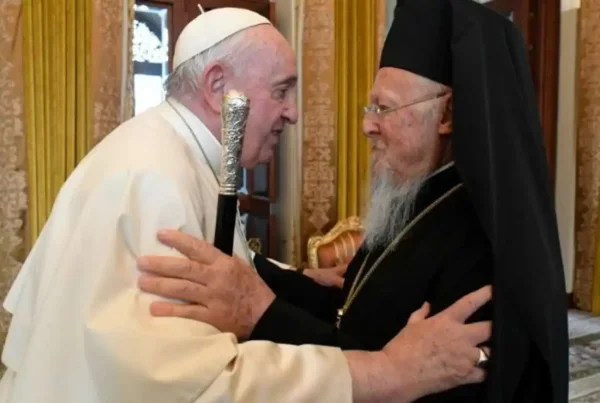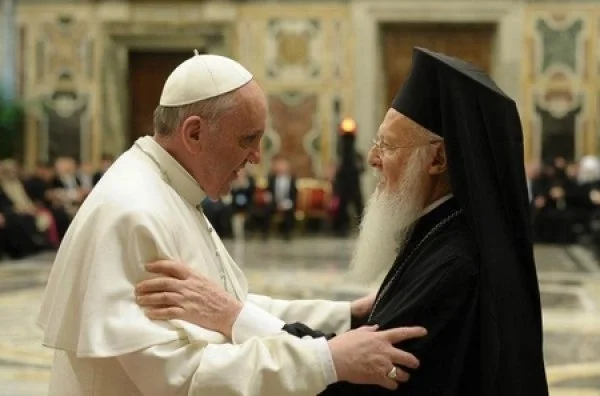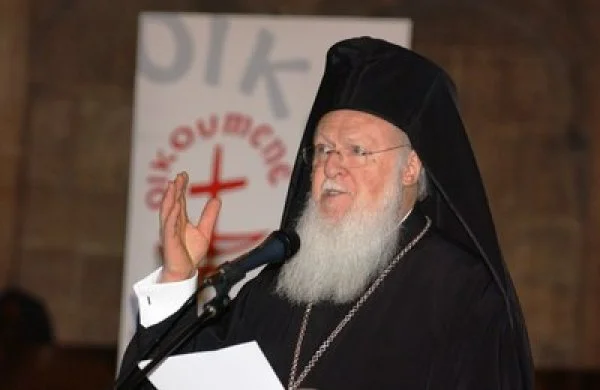- Français
- |
- Booklist
- |
- Week of Prayer
- |
- Links
- Areopagus - a forum for dialogue
- Academic journals
- Acronyms
- Bible tools
- Bibliographies
- Booksellers and publishers
- Churches
- Canadian church headquarters
- Directory of Saskatchewan churches
- Retreat centres
- Saskatchewan church and non-profit agencies
- Ecumenism.net Denominational links
- Anabaptist & Mennonite
- Anglican
- Baptist
- Evangelical
- Independent episcopal
- Lutheran
- Methodist, Wesleyan, and Holiness
- Miscellaneous
- Mormon
- Orthodox (Eastern & Oriental)
- Para-church ministries
- Pentecostal / charismatic
- Presbyterian & Reformed
- Quaker (Society of Friends)
- Roman & Eastern Catholic
- United and uniting
- Documents of Ecumenical Interest
- Ecumenical agencies
- Ecumenical Booklist
- Ecumenical Dialogues
- Glossary
- Human rights
- Inter-religious links
- Justice & peace
- Lectionaries
- Religious news services
- Resource pages
- Search Ecumenism.Net
- |
- Documents
- Ancient & Medieval texts
- Ecumenical Dialogues
- Interreligious
- Anabaptist & Mennonite
- Anglican
- Evangelical
- Lutheran
- Orthodox
- Reformed & Presbyterian
- Roman & Eastern Catholic
- United & Uniting
- Miscellaneous churches
- Canadian Council of Churches (CCC)
- Conference of European Churches (CEC)
- Interchurch Families International Network (IFIN)
- National Council of Churches in Australia (NCCA)
- Lausanne Committee for World Evangelism (LCWE)
- World Council of Churches (WCC)
- Other ecumenical documents
Church traditions
Documents from ecumenical agencies
- |
- Dialogues
- Adventist-Reformed
- African Instituted Churches-Reformed
- Anglican-Lutheran
- Anglican-Orthodox
- Anglican-Reformed
- Anglican-Roman Catholic
- Anglican-United/Uniting
- Baptist-Reformed
- Disciples of Christ-Reformed
- Disciples of Christ-Roman Catholic
- Evangelical-Roman Catholic
- Lutheran-Mennonite
- Lutheran-Mennonite-Roman Catholic
- Lutheran-Reformed
- Lutheran-Roman Catholic
- Mennonite-Reformed
- Mennonite-Roman Catholic
- Methodist-Reformed
- Methodist-Roman Catholic
- Oriental Orthodox-Reformed
- Orthodox-Reformed
- Orthodox-Roman Catholic
- Pentecostal-Reformed
- Prague Consultations
- REC-WARC Consultations
- Roman Catholic-Lutheran-Reformed
- Roman Catholic-Reformed
- Roman Catholic-United Church of Canada
- |
- Quick links
- Canadian Centre for Ecumenism
- Canadian Council of Churches
- Ecumenical Shared Ministries
- Ecumenism in Canada
- Interchurch Families International Network
- International Anglican-Roman Catholic Commission for Unity and Mission
- Kairos: Canadian Ecumenical Justice Initiatives
- North American Academy of Ecumenists
- Prairie Centre for Ecumenism
- Réseau œcuménique justice et paix
- Week of Prayer for Christian Unity
- Women's Interchurch Council of Canada
- World Council of Churches
- |
- Archives
- |
- About us
Archive for tag: Bartholomew I
Archive pour tag : Bartholomew I
Pope Leo XIV and Ecumenical Patriarch Bartholomew of Constantinople called on Christians of the East and West to finally agree on a common date for Easter.
During a meeting at the patriarchal palace on 29 November, the two leaders — who met to celebrate the 1,700th anniversary of the Council of Nicaea — said the anniversary should inspire “new and courageous steps on the path toward unity,” including finding that common date.
… Read more » … lire la suite »

 Permanent link: ecumenism.net/?p=14716
Permanent link: ecumenism.net/?p=14716
Categories: CNS • In this article: Bartholomew I, Date of Easter, declarations, peace, Pope Leo XIV, Türkiye, Ukraine

 Lien permanente : ecumenism.net/?p=14716
Lien permanente : ecumenism.net/?p=14716
Catégorie : CNS • Dans cet article : Bartholomew I, Date of Easter, declarations, peace, Pope Leo XIV, Türkiye, Ukraine
Although the ancient city of Nicaea lies in ruins and the geographic centre of Christianity has shifted West, Pope Leo XIV and Christian leaders gathered at an archaeological site in Türkiye to celebrate the enduring faith set out in the Nicene Creed.
Orthodox Ecumenical Patriarch Bartholomew of Constantinople hosted the ecumenical prayer service and the common recitation of the Creed Nov. 28 at Iznik, site of the ancient Nicaea, about 80 miles southeast of Istanbul.
… Read more » … lire la suite »

 Permanent link: ecumenism.net/?p=14712
Permanent link: ecumenism.net/?p=14712
Categories: CNS • In this article: Bartholomew I, Nicaea, Nicene-Constantinopolitan Creed, Pope Leo XIV, Türkiye

 Lien permanente : ecumenism.net/?p=14712
Lien permanente : ecumenism.net/?p=14712
Catégorie : CNS • Dans cet article : Bartholomew I, Nicaea, Nicene-Constantinopolitan Creed, Pope Leo XIV, Türkiye
On the eve of the feast of Saint Andrew the First-called Apostle, brother of the Apostle Peter and patron of the Ecumenical Patriarchate, we, Pope Leo XIV and Ecumenical Patriarch Bartholomew, give heartfelt thanks to God, our merciful Father, for the gift of this fraternal meeting. Following the example of our venerable predecessors, and heeding the will of our Lord Jesus Christ, we continue to walk with firm determination on the path of dialogue, in love and truth (cf. Eph 4:15), towards the hoped-for restoration of full communion between our sister Churches. Aware that Christian unity is not merely the result of human efforts, but a gift that comes from on high, we invite all the members of our Churches – clergy, monastics, consecrated persons, and the lay faithful – earnestly to seek the fulfilment of the prayer that Jesus Christ addressed to the Father: “that they may all be one, even as you, Father, are in me, and I in you… so that the world may believe” (Jn 17:21).
… Read more » … lire la suite »

 Permanent link: ecumenism.net/?p=14710
Permanent link: ecumenism.net/?p=14710
Categories: Documents, News • In this article: Bartholomew I, Catholic, declarations, Orthodox, Pope Leo XIV, Türkiye

 Lien permanente : ecumenism.net/?p=14710
Lien permanente : ecumenism.net/?p=14710
Catégorie : Documents, News • Dans cet article : Bartholomew I, Catholic, declarations, Orthodox, Pope Leo XIV, Türkiye
Pope Leo XIV and Ecumenical Patriarch Bartholomew of Constantinople met at the patriarchal seat in the ancient Phanar quarter on Saturday (Nov. 29) to sign a joint declaration affirming their commitment to achieving communion between the two churches.
“We continue to walk with firm determination on the path of dialogue, in love and truth, towards the hoped-for restoration of full communion between our sister Churches,” the declaration read.
… Read more » … lire la suite »

 Permanent link: ecumenism.net/?p=14708
Permanent link: ecumenism.net/?p=14708
Categories: Documents, RNS • In this article: Bartholomew I, Catholic, declarations, Orthodox, Pope Leo XIV, Türkiye

 Lien permanente : ecumenism.net/?p=14708
Lien permanente : ecumenism.net/?p=14708
Catégorie : Documents, RNS • Dans cet article : Bartholomew I, Catholic, declarations, Orthodox, Pope Leo XIV, Türkiye
In an historic commemoration of the 1700th anniversary of the First Ecumenical Council, faith leaders gathered in Nicaea—modern-day Iznik, Türkiye – on 28 November to mark the 1700th anniversary of the First Ecumenical Council in the history of the church.
World Council of Churches (WCC) general secretary Rev. Prof. Dr Jerry Pillay joined His All Holiness Patriarch Bartholomew and Pope Leo XIV for an ecumenical prayer service.
… Read more » … lire la suite »

 Permanent link: ecumenism.net/?p=14704
Permanent link: ecumenism.net/?p=14704
Categories: WCC News • In this article: Bartholomew I, Jerry Pillay, Nicaea, Nicene-Constantinopolitan Creed, Pope Leo XIV, Türkiye

 Lien permanente : ecumenism.net/?p=14704
Lien permanente : ecumenism.net/?p=14704
Catégorie : WCC News • Dans cet article : Bartholomew I, Jerry Pillay, Nicaea, Nicene-Constantinopolitan Creed, Pope Leo XIV, Türkiye
At the heart of Pope Leo XIV’s journey to Türkiye this weekend will be a pilgrimage to Iznik, a small city about 140 km south of Istanbul. Iznik is better known to Church history by its Greek name, Nicaea. That’s where, 1700 years ago, the First Ecumenical Council was held. This Friday, Pope Leo is gathering with Ecumenical Patriarch Bartholomew I and other Christian leaders for an ecumenical prayer service to celebrate the landmark anniversary.
… Read more » … lire la suite »

 Permanent link: ecumenism.net/?p=14702
Permanent link: ecumenism.net/?p=14702
Categories: News, Opinion • In this article: Bartholomew I, Nicaea, Nicene-Constantinopolitan Creed, Pope Leo XIV

 Lien permanente : ecumenism.net/?p=14702
Lien permanente : ecumenism.net/?p=14702
Catégorie : News, Opinion • Dans cet article : Bartholomew I, Nicaea, Nicene-Constantinopolitan Creed, Pope Leo XIV
Today, Thursday, April 10, 2025, the John Templeton Foundation, in collaboration with the Templeton World Charity Foundation and the Templeton Religion Trust, announced that the recipient of the 2025 Templeton Prize is the Ecumenical Patriarch Bartholomew.
The Ecumenical Patriarch, the longest-serving Archbishop of the Apostolic Throne of Constantinople, is widely recognised, as noted in the Foundation’s official announcement, for “his pioneering efforts to bridge scientific and spiritual approaches to humanity’s relationship with the natural world, inspiring people of all faiths to become stewards of creation”.
Patriarch Bartholomew is internationally acclaimed for his groundbreaking contribution to ecological advocacy, interfaith dialogue, and peacebuilding efforts around the world. These include the unique “Religion, Science, and the Environment” symposia held aboard ships from the Amazon to the Arctic Ocean, his numerous ecumenical and interfaith initiatives within and beyond the Abrahamic traditions, and his sincere and courageous stance on matters of sovereignty and integrity in Ukraine and the pursuit of peace in the region.
… Read more » … lire la suite »

 Permanent link: ecumenism.net/?p=14561
Permanent link: ecumenism.net/?p=14561
Categories: News • In this article: Bartholomew I, ecology, Ecumenical Patriarch of Constantinople, Templeton Prize

 Lien permanente : ecumenism.net/?p=14561
Lien permanente : ecumenism.net/?p=14561
Catégorie : News • Dans cet article : Bartholomew I, ecology, Ecumenical Patriarch of Constantinople, Templeton Prize
Following a long-standing tradition, on the occasion of today’s Feast of St. Andrew the Apostle, patron saint of Constantinople, Pope Francis has sent a delegation to Istanbul to convey his greetings and the assurance of his “fraternal affection” to the Ecumenical Patriarch of Constantinople Bartholomew I.
The visit is part of the annual exchange of Delegations between the Holy See and the Patriarchate for their respective patronal feasts, on 29 June in Rome, the Feast of St. Peter and Paul, and on 30 November in Istanbul, Türkiye.
In his message, Pope Francis highlights listening without condemning as the primary path toward unity between Catholics and Orthodox Christians, expressing his hope that the upcoming celebrations 1,700th anniversary of the First Ecumenical Council of Nicaea may offer an opportunity to strengthen the fraternal relations they have developed over the past six decades.
… Read more » … lire la suite »

 Permanent link: ecumenism.net/?p=14394
Permanent link: ecumenism.net/?p=14394
Categories: Vatican News • In this article: Bartholomew I, Dicastery for Promoting Christian Unity, Kurt Koch, Orthodox, Vatican

 Lien permanente : ecumenism.net/?p=14394
Lien permanente : ecumenism.net/?p=14394
Catégorie : Vatican News • Dans cet article : Bartholomew I, Dicastery for Promoting Christian Unity, Kurt Koch, Orthodox, Vatican
His All-Holiness the Ecumenical Patriarch Bartholomew has noted that the Easter celebrations in 2025 “will not merely be a fortuitous occurrence, but rather the beginning of a unified date for its observance by both Eastern and Western Christianity.”
The Ecumenical Patriarch said that this aspiration is particularly significant in light of the upcoming 1700th anniversary in 2025, marking the convening of the First Ecumenical Synod in Nicaea.
… Read more » … lire la suite »

 Permanent link: ecumenism.net/?p=14358
Permanent link: ecumenism.net/?p=14358
Categories: WCC News • In this article: Bartholomew I, Date of Easter, Ecumenical Patriarch of Constantinople, Nicaea 2025

 Lien permanente : ecumenism.net/?p=14358
Lien permanente : ecumenism.net/?p=14358
Catégorie : WCC News • Dans cet article : Bartholomew I, Date of Easter, Ecumenical Patriarch of Constantinople, Nicaea 2025
Pope Francis said Wednesday that the full restoration of communion among all Christians is “an urgent priority in today’s world.”
In a letter to the Ecumenical Patriarch Bartholomew I of Constantinople, the pope expressed gratitude that Catholic and Orthodox Christians are seeking “to achieve full communion that will enable us one day, in God’s time, to gather together at the same eucharistic table.”
… Read more » … lire la suite »

 Permanent link: ecumenism.net/?p=12880
Permanent link: ecumenism.net/?p=12880
Categories: CNA • In this article: 1700th anniversary, Bartholomew I, Catholic, Date of Easter, Nicaea 2025, Orthodox, Pope Francis

 Lien permanente : ecumenism.net/?p=12880
Lien permanente : ecumenism.net/?p=12880
Catégorie : CNA • Dans cet article : 1700th anniversary, Bartholomew I, Catholic, Date of Easter, Nicaea 2025, Orthodox, Pope Francis
Pope Francis in a message to Ecumenical Patriarch of Constantinople Bartholomew I has called for a continuous analyzing of the historical and theological reasons for the ongoing divisions between the two Churches “in a spirit that is neither polemical nor apologetic but marked instead by authentic dialogue and mutual openness”.
… Read more » … lire la suite »

 Permanent link: ecumenism.net/?p=12877
Permanent link: ecumenism.net/?p=12877
Categories: La Croix • In this article: Bartholomew I, Catholic, Orthodox, Pope Francis

 Lien permanente : ecumenism.net/?p=12877
Lien permanente : ecumenism.net/?p=12877
Catégorie : La Croix • Dans cet article : Bartholomew I, Catholic, Orthodox, Pope Francis
While formal dialogue about the theological and historical causes of the splits in Christianity are essential, so, too, is a recognition that “sinful actions and attitudes” have contributed and continue to contribute to divisions in the body of Christ, Pope Francis said.
“We are called, then, to work toward the restoration of unity between Christians, not merely through signed agreements but through fidelity to the Father’s will and discernment of the promptings of the Spirit,” Pope Francis wrote in a letter to Ecumenical Patriarch Bartholomew of Constantinople Nov. 30, the feast of St. Andrew.
… Read more » … lire la suite »

 Permanent link: ecumenism.net/?p=12871
Permanent link: ecumenism.net/?p=12871
Categories: CNS • In this article: Bartholomew I, Catholic, Christian unity, Orthodox, Pope Francis

 Lien permanente : ecumenism.net/?p=12871
Lien permanente : ecumenism.net/?p=12871
Catégorie : CNS • Dans cet article : Bartholomew I, Catholic, Christian unity, Orthodox, Pope Francis
Pope Francis led an ecumenical prayer meeting with the participation of the Ecumenical Patriarch Bartholomew and Christian leaders from Bahrain
… Read more » … lire la suite »

 Permanent link: ecumenism.net/?p=12907
Permanent link: ecumenism.net/?p=12907
Categories: News • In this article: apostolic visits, Bartholomew I, Pope Francis

 Lien permanente : ecumenism.net/?p=12907
Lien permanente : ecumenism.net/?p=12907
Catégorie : News • Dans cet article : apostolic visits, Bartholomew I, Pope Francis
His All-Holiness Ecumenical Patriarch Bartholomew offered greetings and a pointed message to the delegates and participants at the World Council of Churches (WCC) 11th Assembly in Karlsruhe, Germany.
He began his remarks with the teaching and the belief that “the light of Christ shines more brightly than any darkness in our hearts and in our world,” offering this idea as the underlying premise to the theme of the assembly, that “Christ’s love moves the world to reconciliation and unity.”
Yet, we have fallen short of this ideal, he suggested. Asking each of us the question, “how can we reconcile our magnificent faith with our manifest failure?”
… Read more » … lire la suite »

 Permanent link: ecumenism.net/?p=12382
Permanent link: ecumenism.net/?p=12382
Categories: Conferences, WCC News • In this article: Bartholomew I, creation, WCC, WCC Assembly

 Lien permanente : ecumenism.net/?p=12382
Lien permanente : ecumenism.net/?p=12382
Catégorie : Conferences, WCC News • Dans cet article : Bartholomew I, creation, WCC, WCC Assembly
The formal recognition of the Orthodox Church of Ukraine brings “a wind of hope” that new opportunities will be created for dialogue and concrete cooperation in the search for Christian unity, said the head of the Ukrainian Catholic Church. Archbishop Sviatoslav Shevchuk, major archbishop of the Ukrainian Greek Catholic Church, said he already has agreed with the Orthodox Church’s newly elected Metropolitan Epiphanius of Kiev to draw up a “road map” to examine where the two churches could work together. The archbishop made his comments in a long interview with Glavcom, a Ukrainian news site; the Ukrainian Catholic Church’s website published the English translation of the interview Jan. 10.
… Read more » … lire la suite »

 Permanent link: ecumenism.net/?p=10440
Permanent link: ecumenism.net/?p=10440
Categories: CNS • In this article: Bartholomew I, Epiphanius, Orthodox, Sviatoslav Shevchuk, Ukraine, Ukrainian Catholic

 Lien permanente : ecumenism.net/?p=10440
Lien permanente : ecumenism.net/?p=10440
Catégorie : CNS • Dans cet article : Bartholomew I, Epiphanius, Orthodox, Sviatoslav Shevchuk, Ukraine, Ukrainian Catholic
After the vespers in honour of St Andrew, patron saint of the Ecumenical Patriarchate of Constantinople, Patriarch Bartholomew received an international Orthodox interparliamentary delegation of which 24 States are members, presided over by the Russian Gavrilof, who took part to the festivities.
The Patriarch told those present that the work of the Synod had just been completed and that the Tomos is being prepared for granting the autocephaly to the Ukrainian Church. In this context the new statute of the Ukrainian Church was discussed, a subject that will continue during the Ukrainian Synod in December during which it is hoped that all the Orthodox parties will participate, to arrive at the election of the primate and grant the so-called Tomos. A new church will thus be added to the existing 14: “It is a purely administrative fact that does not affect the magisterium of the Orthodox Church”, Bartholomew explained.
… Read more » … lire la suite »

 Permanent link: ecumenism.net/?p=10311
Permanent link: ecumenism.net/?p=10311
Categories: News • In this article: Bartholomew I, Orthodox, Ukraine

 Lien permanente : ecumenism.net/?p=10311
Lien permanente : ecumenism.net/?p=10311
Catégorie : News • Dans cet article : Bartholomew I, Orthodox, Ukraine
Pope Francis and Ecumenical Patriarch Bartholomew of Constantinople called on Christians to work together to build a culture of solidarity in the face of growing economic inequality and a lack of respect for the human dignity of the poor and of migrants.
The two leaders met privately May 26 before addressing an international conference sponsored by the Centesimus Annus Pro Pontifice Foundation, which seeks to promote the teaching of St. John Paul II’s 1991 encyclical on social and economic justice.
“The current difficulties and crises within the global economic system have an undeniable ethical dimension,” Pope Francis told some 500 business leaders, theologians and proponents of Catholic social teaching.
… Read more » … lire la suite »

 Permanent link: ecumenism.net/?p=10258
Permanent link: ecumenism.net/?p=10258
Categories: CNS • In this article: Bartholomew I, economic ethics, Pope Francis

 Lien permanente : ecumenism.net/?p=10258
Lien permanente : ecumenism.net/?p=10258
Catégorie : CNS • Dans cet article : Bartholomew I, economic ethics, Pope Francis
As leaders of dozens of religions gathered in Assisi for dialogue and prayers for peace, they honored Orthodox Ecumenical Patriarch Bartholomew of Constantinople as an exemplar of one who is so deeply rooted in his own religious tradition that he can reach out to others without fear.
Jewish, Anglican and Catholic leaders paid tribute to Patriarch Bartholomew as he was about to celebrate the 25th anniversary of his enthronement as spiritual leader of the world’s Orthodox Christians. Pope Francis was scheduled to participate in a celebratory luncheon for the patriarch Sept. 20 in Assisi.
The Assisi celebrations Sept. 18-20 were organized by the Rome-based Community of Sant’Egidio, the Diocese of Assisi and the Franciscan friars.
… Read more » … lire la suite »

 Permanent link: ecumenism.net/?p=9553
Permanent link: ecumenism.net/?p=9553
Categories: CNS • In this article: Assisi, Bartholomew I, David Rosen, Justin Welby, peace, Pope Francis, prayer

 Lien permanente : ecumenism.net/?p=9553
Lien permanente : ecumenism.net/?p=9553
Catégorie : CNS • Dans cet article : Assisi, Bartholomew I, David Rosen, Justin Welby, peace, Pope Francis, prayer
Pope Francis, Ecumenical Patriarch Bartholomew and Archbishop Ieronymos of Athens and All Greece met on the Greek island of Lesvos on 16 April to demonstrate their concern for the situation of refugees, migrants and asylum seekers who have come to Europe fleeing from situations of conflict and, in many cases, daily threats to their survival.
The three church leaders urged people not to ignore the humanitarian crisis created by the spread of violence and armed conflict, the persecution and displacement of religious and ethnic minorities, and the uprooting of families from their homes.
“The tragedy of forced migration and displacement affects millions, and is fundamentally a crisis of humanity, calling for a response of solidarity, compassion, generosity and an immediate practical commitment of resources,” reads their message. “From Lesvos, we appeal to the international community to respond with courage in facing this massive humanitarian crisis, and its underlying causes, through diplomatic, political and charitable initiatives and through cooperative efforts, both in the Middle East and in Europe.”
The three leaders said they are one in their desire for peace and in their readiness to promote the resolution of conflicts through dialogue and reconciliation.
… Read more » … lire la suite »

 Permanent link: ecumenism.net/?p=9129
Permanent link: ecumenism.net/?p=9129
Categories: Communiqué, WCC News • In this article: Bartholomew I, Pope Francis, refugees

 Lien permanente : ecumenism.net/?p=9129
Lien permanente : ecumenism.net/?p=9129
Catégorie : Communiqué, WCC News • Dans cet article : Bartholomew I, Pope Francis, refugees
As part of the observation of the Time for Creation, Bartholomew I, Ecumenical Patriarch of Constantinople, has once again sent an encyclical to remind churches and people of goodwill about the grave risks deriving from growing abuse of energy resources, threatening to increase global warming and the sustainability of the natural environment.
“We invite everyone to soberness of life, purification of passionate thoughts and selfish motivations, so that we may dwell in harmony with our neighbours and with God’s creation,” said Bartholomew I.
These reflections were shared by the Ecumenical Patriarch on the occasion of the start of a “Time for Creation”, a global event which invokes prayers for creation, eco-justice and peace with the earth. It has been celebrated each year since 1989 from 1 September to 4 October. This year’s event has been promoted by Pope Francis’s recent proclamation of 1 September as the “World Day of Prayer for the Care of Creation.”
The Time for Creation was affirmed by the WCC Central Committee in 2008 as an invitation “to observe through prayers and action a special time for creation, its care and stewardship.”
… Read more » … lire la suite »

 Permanent link: ecumenism.net/?p=8667
Permanent link: ecumenism.net/?p=8667
Categories: Documents, WCC News • In this article: Bartholomew I, creation, ecology, encyclicals, environment

 Lien permanente : ecumenism.net/?p=8667
Lien permanente : ecumenism.net/?p=8667
Catégorie : Documents, WCC News • Dans cet article : Bartholomew I, creation, ecology, encyclicals, environment
Pope Francis and Ecumenical Patriarch Bartholomew, leaders of the millennium-long separated Roman Catholic and Eastern Orthodox churches, have issued resounding and historic calls for the reunification of their global communities. Speaking to one another after a solemn Orthodox divine liturgy in St. George, an historic Christian center, Sunday, both leaders pledged to intensify efforts for full unity of their churches, saying such unity already exists among Christians dying in conflicts in the Middle East. For his part, Francis made what appears to be the strongest and most encompassing call yet from a Catholic pontiff for unity. Seeking to assure Orthodox leaders that restoration of full communion between the churches would respect Eastern traditions, he said reunion would “not signify the submission of one to the other, or assimilation.” “I want to assure each one of you here that, to reach the desired goal of full unity, the Catholic church does not intend to impose any conditions except that of the shared profession of faith,” said the pope.
… Read more » … lire la suite »

 Permanent link: ecumenism.net/?p=7921
Permanent link: ecumenism.net/?p=7921
Categories: News • In this article: Bartholomew I, Catholic, dialogue, Ecumenical Patriarch of Constantinople, Orthodox, Pope Francis

 Lien permanente : ecumenism.net/?p=7921
Lien permanente : ecumenism.net/?p=7921
Catégorie : News • Dans cet article : Bartholomew I, Catholic, dialogue, Ecumenical Patriarch of Constantinople, Orthodox, Pope Francis
We, Pope Francis and Ecumenical Patriarch Bartholomew I, express our profound gratitude to God for the gift of this new encounter enabling us, in the presence of the members of the Holy Synod, the clergy and the faithful of the Ecumenical Patriarchate, to celebrate together the feast of Saint Andrew, the first-called and brother of the Apostle Peter. Our remembrance of the Apostles, who proclaimed the good news of the Gospel to the world through their preaching and their witness of martyrdom, strengthens in us the aspiration to continue to walk together in order to overcome, in love and in truth, the obstacles that divide us.
… Read more » … lire la suite »

 Permanent link: ecumenism.net/?p=7918
Permanent link: ecumenism.net/?p=7918
Categories: Communiqué, Vatican News • In this article: Bartholomew I, dialogue, Ecumenical Patriarch of Constantinople, interfaith, Pope Francis

 Lien permanente : ecumenism.net/?p=7918
Lien permanente : ecumenism.net/?p=7918
Catégorie : Communiqué, Vatican News • Dans cet article : Bartholomew I, dialogue, Ecumenical Patriarch of Constantinople, interfaith, Pope Francis
On his return from Jerusalem, where he met with Pope Francis at the Holy Sepulchre, the Ecumenical Patriarch of Constantinople, Bartholomew I, has revealed an important appointment for unity between Catholics and Orthodox: a gathering at Nicaea in 2025, where the first real ecumenical council of the undivided Church was celebrated.
Speaking exclusively with AsiaNews, Bartholomew says that together with Pope Francis “we agreed to leave as a legacy to ourselves and our successors a gathering in Nicaea in 2025, to celebrate together, after 17 centuries, the first truly ecumenical synod, where the Creed was first promulgated”. The Council of Nicaea (now Iznik, 130 km south-east of Istanbul), brought together more than 300 bishops from East and West in 325 and is considered the first true ecumenical council. It was there that the formula of the Creed was decided, similar to the one recited during the liturgy today, saying that Jesus “is consubstantial to the Father,” to counter the Arian ideology.
… Read more » … lire la suite »

 Permanent link: ecumenism.net/?p=7670
Permanent link: ecumenism.net/?p=7670
Categories: News • In this article: 1700th anniversary, Bartholomew I, Catholic, Nicaea 2025, Orthodox, Pope Francis, synods

 Lien permanente : ecumenism.net/?p=7670
Lien permanente : ecumenism.net/?p=7670
Catégorie : News • Dans cet article : 1700th anniversary, Bartholomew I, Catholic, Nicaea 2025, Orthodox, Pope Francis, synods
Like our venerable predecessors Pope Paul VI and Ecumenical Patriarch Athenagoras who met here in Jerusalem fifty years ago, we too, Pope Francis and Ecumenical Patriarch Bartholomew, were determined to meet in the Holy Land “where our common Redeemer, Christ our Lord, lived, taught, died, rose again, and ascended into Heaven, whence he sent the Holy Spirit on the infant Church” (Common communiqué of Pope Paul VI and Patriarch Athenagoras, published after their meeting of 6 January 1964). Our meeting, another encounter of the Bishops of the Churches of Rome and Constantinople founded respectively by the two Brothers the Apostles Peter and Andrew, is a source of profound spiritual joy for us. It presents a providential occasion to reflect on the depth and the authenticity of our existing bonds, themselves the fruit of a grace-filled journey on which the Lord has guided us since that blessed day of fifty years ago.
… Read more » … lire la suite »

 Permanent link: ecumenism.net/?p=7666
Permanent link: ecumenism.net/?p=7666
Categories: Communiqué, Vatican News • In this article: Bartholomew I, Catholic, dialogue, Orthodox, Pope Francis

 Lien permanente : ecumenism.net/?p=7666
Lien permanente : ecumenism.net/?p=7666
Catégorie : Communiqué, Vatican News • Dans cet article : Bartholomew I, Catholic, dialogue, Orthodox, Pope Francis
The historic meeting between Pope Paul VI and Ecumenical Patriarch Athenagoras in Jerusalem in January 1964 was a joyful occasion that swept aside centuries of division and has born good fruit, said Archbishop Joseph E. Kurtz of Louisville, Kentucky, president of the U.S. Conference of Catholic Bishops, and Archbishop Demetrios, primate of the Greek Orthodox Church in America and chairman of the Assembly of Canonical Orthodox Bishops of the United States of America, in a joint statement, May 15.
The statement anticipated the May 25 meeting of Pope Francis and Ecumenical Patriarch Bartholomew in Jerusalem.
Archbishop Kurtz and Archbishop Demetrios said the growing closeness between Catholic and Orthodox Christians over the last 50 years has allowed them “to speak with one voice” on issues facing society.
“We commit ourselves to increased cooperation in these areas, including social, economic, and ethical dilemmas, and we call our people to pray for the success of the upcoming meeting between Pope Francis and Ecumenical Patriarch Bartholomew in Jerusalem for the glory of God and the promotion of Christianity in our wounded world,” the statement said.
… Read more » … lire la suite »

 Permanent link: ecumenism.net/?p=7567
Permanent link: ecumenism.net/?p=7567
Categories: Communiqué • In this article: Bartholomew I, Pope Francis

 Lien permanente : ecumenism.net/?p=7567
Lien permanente : ecumenism.net/?p=7567
Catégorie : Communiqué • Dans cet article : Bartholomew I, Pope Francis
The motto and logo of Pope Francis’ visit to the Holy Land
Ut unum sint is the motto chosen for Pope Francis’ visit to the Holy Land. The website theholylandreview.net announced this following the Assembly of Catholic Ordinaries of the Holy Land which was held in Tiberias on 11-12 March. There the heads of the Catholic communities in Israel, Palestine, Jordan and Cyprus presented the logo and motto for the Pope’s pilgrimage scheduled for 24-26 May.
The motto of the pilgrimage, according to the website, “is at the very core of his trip to the Holy Land”. Francis and Bartolomaios are scheduled to meet in the Basilica of the Holy Sepulchre to commemorate and renew the desire and longing for unity among Christians, expressed by Pope Paul VI and Orthodox Patriarch Athenagoras 50 years ago in Jerusalem. In addition, the logo depicts the embrace between the two brothers, Apostles Peter and Andrew: the first two disciples called by Jesus in Galilee, patrons respectively of the Church of Rome and the Church of Constantinople.
… Read more » … lire la suite »

 Permanent link: ecumenism.net/?p=7452
Permanent link: ecumenism.net/?p=7452
Categories: Vatican News • In this article: Bartholomew I, Ecumenical Patriarch of Constantinople, ecumenism, Pope Francis

 Lien permanente : ecumenism.net/?p=7452
Lien permanente : ecumenism.net/?p=7452
Catégorie : Vatican News • Dans cet article : Bartholomew I, Ecumenical Patriarch of Constantinople, ecumenism, Pope Francis
Almost a year after Francis’ election and with the Week of Prayer for Christian Unity at an end, it is now possible to give a first overview of the Pope’s initiatives to promote ecumenism. “For me ecumenism is a priority” Francis told Vatican Insider and Italian newspaper La Stampa in last December’s interview.
Some of the choices he made even at the very start of his pontificate had a very positive impact of ecumenism.
… Read more » … lire la suite »

 Permanent link: ecumenism.net/?p=7231
Permanent link: ecumenism.net/?p=7231
Categories: News • In this article: Bartholomew I, papacy, Pope Francis

 Lien permanente : ecumenism.net/?p=7231
Lien permanente : ecumenism.net/?p=7231
Catégorie : News • Dans cet article : Bartholomew I, papacy, Pope Francis
There are many reasons to be hopeful about the direction of Catholic-Orthodox dialogue but it is threatened by tensions emerging within the Orthodox Church. As the Week of Prayer for Christian Unity gets under way today, a leading ecumenist gives his assessment.
In 1923, a schoolteacher priest of Lyons started devoting his spare time to helping the 10,000 refugees from Bolshevism camped and lodged around the city and its suburbs. It was his first encounter with a Christianity that was not Roman Catholic. Thus he learned the friendship of receiving as well as giving, finding great respect for the Orthodox clergy and people in their moment of destitution, as his heart opened to their faith and the beauty of their worship. He was astonished to find Catholics from the old Russian Empire who were not Latins, but Eastern Christians who maintained their unity with the Bishop of Rome with roots to before the Great Schism. Over the next decade, Paul Couturier became convinced of the need for Christian unity, and in 1935 he took hold of the Catholic Church Unity Octave, founded in 1908, and developed it into a “Universal Week of Prayer for the Unity of Christians in the charity and truth of Christ”. Inspired by the holiness of the Orthodox, beyond this world he imagined an “invisible monastery”, in which all could unite in prayer to God in Heaven, in the hope of seeing the same union realised in the Church here. He took for his motto the saying of Metropolitan Platon Gorodetsky of Kiev: “The walls of separation do not rise as far as Heaven.”
… Read more » … lire la suite »

 Permanent link: ecumenism.net/?p=7184
Permanent link: ecumenism.net/?p=7184
Categories: Tablet • In this article: Bartholomew I, Catholic, ecumenism, Moscow Patriarchate, Orthodox

 Lien permanente : ecumenism.net/?p=7184
Lien permanente : ecumenism.net/?p=7184
Catégorie : Tablet • Dans cet article : Bartholomew I, Catholic, ecumenism, Moscow Patriarchate, Orthodox
The Archbishop of Canterbury affirmed his commitment to the reconciliation of Eastern and Western churches during a meeting with His All-Holiness Ecumenical Patriarch Bartholomew yesterday.
The Most Revd Justin Welby was meeting with Patriarch Bartholomew during a two-day visit to Istanbul.
During their meeting Archbishop Justin said that Patriarch Bartholomew had been “an example of peace and reconciliation, politically, with the natural world, and in your historic visit to the installation of His Holiness Pope Francis I.
“Such reconciliation [is] very dear to my heart and is one of my key priorities. It is the call of Christ that all may be one so that the world may see. I will therefore be taking back with me the warmth of your hospitality and also, after our discussions today and tomorrow, a renewed and refreshed focus for greater unity and closer fellowship. We want to carry the cross of our divisions, but be filled with the hope and joy that comes from the grace and the love of Jesus.”
… Read more » … lire la suite »

 Permanent link: ecumenism.net/?p=7181
Permanent link: ecumenism.net/?p=7181
Categories: ACNS, Communiqué • In this article: Anglican, Archbishop of Canterbury, Bartholomew I, dialogue, Ecumenical Patriarch of Constantinople, Justin Welby, Orthodox

 Lien permanente : ecumenism.net/?p=7181
Lien permanente : ecumenism.net/?p=7181
Catégorie : ACNS, Communiqué • Dans cet article : Anglican, Archbishop of Canterbury, Bartholomew I, dialogue, Ecumenical Patriarch of Constantinople, Justin Welby, Orthodox
The Ecumenical Patriarch said today he hoped for a continuing exchange of Orthodox and Anglican students to aid the two Churches’ relationship.
His All-Holiness Ecumenical Patriarch Bartholomew, who occupies the First Throne of the Orthodox Christian Church, was speaking today during his welcome of the Anglican Communion’s spiritual head Archbishop of Canterbury Justin Welby.
He said, “In the past, the rapprochement between our two Churches has been greatly assisted by the exchange of students, and we trust that this will continue. Our Theological School at Halki used to offer scholarships to Anglicans, and when it is reopened – as will happen in the near future (so it may be hoped) – we shall certainly wish to revive this tradition.
“These exchange students have frequently gone on to become leaders in their respective Churches, and their early inter-Church experience has enabled them to further the cause of Christian unity in highly constructive ways.”
Archbishop Welby is on what has been described as an ‘intensive two-day visit’ that will include official reception in the Chamber of the Throne, and a discussion with the Synodical Committee for Inter-Christian Affairs.
… Read more » … lire la suite »

 Permanent link: ecumenism.net/?p=7176
Permanent link: ecumenism.net/?p=7176
Categories: ACNS • In this article: Anglican, Bartholomew I, dialogue, Justin Welby, Orthodox

 Lien permanente : ecumenism.net/?p=7176
Lien permanente : ecumenism.net/?p=7176
Catégorie : ACNS • Dans cet article : Anglican, Bartholomew I, dialogue, Justin Welby, Orthodox
Faith can be a powerful ally in addressing issues of social justice, said Bartholomew I, Ecumenical Patriarch of Constantinople. He called faith a bearer of unique perspectives on eradicating poverty, balancing amidst globalization, combating fundamentalism, racism, and developing religious tolerance during conflicts.
Bartholomew I was interviewed for Independent Balkan News Agency on 1 July, speaking on behalf of the Ecumenical Patriarchate, a founding member of the World Council of Churches (WCC).
“It is precisely the role of religion to respond to the needs of the world’s poor as well as to vulnerable and marginalized people. In fact, it is a rare instance where a faith institution is not a defining marker of the space and character of a community,” he said.
… Read more » … lire la suite »

 Permanent link: ecumenism.net/?p=6637
Permanent link: ecumenism.net/?p=6637
Categories: WCC News • In this article: Bartholomew I, Ecumenical Patriarch of Constantinople, Orthodox

 Lien permanente : ecumenism.net/?p=6637
Lien permanente : ecumenism.net/?p=6637
Catégorie : WCC News • Dans cet article : Bartholomew I, Ecumenical Patriarch of Constantinople, Orthodox
“Your presence is the sign of the profound bond that unites the Church of Constantinople with the Church of Rome in faith, in hope, and in charity,” Pope Francis said this morning on receiving the delegation of the Ecumenical Patriarch, which had arrived in Rome to celebrate the Solemnity of Sts. Peter and Paul. The tradition of exchanging visits for the occasions of the respective patronal feasts dates back to 1969. The Pope emphasized that “fraternal gathering is an essential part of the journey towards unity.”
“The search for unity among Christians is an urgent task—you have said that ‘it is not a luxury, but an imperative’—from which, today more than ever, we cannot prescind. In our world that hungers and thirsts for truth, love, hope, peace, and unity, our witness demands that we should at last be able to proclaim, with one voice, the good news of the Gospel and celebrate together the Divine Mysteries of our new life in Christ. We are well aware that unity is primarily a gift from Gift that we must pray for unceasingly, but we all have the task of preparing the conditions, of cultivating the soil of the heart so that this extraordinary grace may be received.”
… Read more » … lire la suite »

 Permanent link: ecumenism.net/?p=6298
Permanent link: ecumenism.net/?p=6298
Categories: Vatican News • In this article: Bartholomew I, Catholic, Ecumenical Patriarch of Constantinople, Orthodox, Pope Francis, Vatican

 Lien permanente : ecumenism.net/?p=6298
Lien permanente : ecumenism.net/?p=6298
Catégorie : Vatican News • Dans cet article : Bartholomew I, Catholic, Ecumenical Patriarch of Constantinople, Orthodox, Pope Francis, Vatican
Pope Francis’ reference to himself as the ‘Bishop of Rome’ was music to the ears of Orthodox leaders for whom the question of papal primacy has long been a problem for reunion. Their attendance at the new Pope’s inaugural Mass was a sign of their hopes for closer communion. A statement from the patriarchate explained Bartholomew’s decision to attend Pope Francis’ inauguration personally: the need for “a profoundly bold step … that could have lasting significance”. It is the first time the Bishop of Constantinople has attended the inauguration of the Bishop of Rome ever, let alone since the great schism of 1054. According to the patriarchate website: “after such a long division … authentic reunion will require courage, leadership and humility. Given Pope Francis’ well-documented work for social justice and his insistence that globalisation is detrimental to the poor … the Orthodox and the Roman Catholic traditions have a renewed opportunity to work collectively on issues of mutual concern … But such work requires a first step and it would appear as though Ecumenical Patriarch Bartholomew is willing to take such a step.” In one of those seemingly informal but resonant gestures that we are beginning to expect from Francis, the response was immediate and commensurate. The successor of Peter greeted the successor of the other Galilean fisherman as “my brother Andrew”.
… Read more » … lire la suite »

 Permanent link: ecumenism.net/?p=3515
Permanent link: ecumenism.net/?p=3515
Categories: Opinion, Tablet • In this article: Bartholomew I, Christian unity, dialogue, Ecumenical Patriarch of Constantinople, ecumenism, Orthodox, patriarch

 Lien permanente : ecumenism.net/?p=3515
Lien permanente : ecumenism.net/?p=3515
Catégorie : Opinion, Tablet • Dans cet article : Bartholomew I, Christian unity, dialogue, Ecumenical Patriarch of Constantinople, ecumenism, Orthodox, patriarch
During the course of this morning’s ceremony in St. Peter’s Square for the opening of the Year of Faith, Ecumenical Patriarch Bartholomew I pronounced an address, extracts of which are given below.
“Fifty years ago in this very square, a powerful and pivotal celebration captured the heart and mind of the Roman Catholic Church, transporting it across the centuries into the contemporary world. This transforming milestone, the opening of Vatican Council II, was inspired by the fundamental reality that the Son and incarnate Logos of God is ‘where two or three are gathered in his name’ and that the Spirit, Who proceeds from the Father, ‘will guide us into the whole truth’.
… Read more » … lire la suite »

 Permanent link: ecumenism.net/?p=2250
Permanent link: ecumenism.net/?p=2250
Categories: News • In this article: Bartholomew I, Ecumenical Patriarch of Constantinople, Orthodox, patriarch

 Lien permanente : ecumenism.net/?p=2250
Lien permanente : ecumenism.net/?p=2250
Catégorie : News • Dans cet article : Bartholomew I, Ecumenical Patriarch of Constantinople, Orthodox, patriarch
En ces lieux, il y a cinquante ans, une cérémonie solennelle a conquis le cœur et l’esprit de l’Eglise catholique, la faisant entrer dans le monde contemporain. L’ouverture d’un concile fut inspiré par la réalité fondamentale que le Fils et Verbe de Dieu incarné se trouve là où deux ou trois sont réunis en son nom et que l’Esprit, qui procède du Père, nous guidera vers la vérité complète… Au cours des cinquante dernières années, les fruits de cette assemblée ont été variés, dont témoigne une série de constitutions importantes, de déclarations et de décrets. Nous avons vu le renouvellement de l’esprit et un retour aux sources dans la recherche liturgique, biblique et patristique.
… Read more » … lire la suite »

 Permanent link: ecumenism.net/?p=2270
Permanent link: ecumenism.net/?p=2270
Categories: News • In this article: Bartholomew I, Ecumenical Patriarch of Constantinople, Orthodox, patriarch

 Lien permanente : ecumenism.net/?p=2270
Lien permanente : ecumenism.net/?p=2270
Catégorie : News • Dans cet article : Bartholomew I, Ecumenical Patriarch of Constantinople, Orthodox, patriarch
The Ecumenical Patriarchate expresses profound sorrow as the world has rushed into a confusing and volatile time of religious protests turning violent, and a grievous lack of consideration for religious differences. When we act disrespectfully and violently in the name of our religious prejudices or our religious beliefs we are undermining our own lives and faith, while creating an atmosphere of anger, hatred, and distrust which unravels the very thread that has woven humanity together since our creation. The Ecumenical Patriarchate issued last August a communiqué “On the resurgence of Violence spreading throughout the World” and called for all people engaged in violence to lay down their weapons. Given the events of the past weeks, this call for peaceful engagement and mutual respect for all humanity is even more critical. Holy Scripture teaches us in Proverbs 10.12 “Hatred stirs up strife, but love covers all sins.” Hence, let us love one another because we know that true love comes from God who created every living person, and He loves every individual in His Divine Providence. We who profess to know God must recognize the Divine miracle of life within each human being and respect that seed of Divine creation. We who name God as our sovereign must nurture human life and reach out with honour to that person with whom we disagree.
… Read more » … lire la suite »

 Permanent link: ecumenism.net/?p=2278
Permanent link: ecumenism.net/?p=2278
Categories: Communiqué • In this article: Bartholomew I, Ecumenical Patriarch of Constantinople, Orthodox, patriarch

 Lien permanente : ecumenism.net/?p=2278
Lien permanente : ecumenism.net/?p=2278
Catégorie : Communiqué • Dans cet article : Bartholomew I, Ecumenical Patriarch of Constantinople, Orthodox, patriarch
The Ecumenical Patriarch of Constantinople Bartholomew I publicly reaffirmed the Ecumenical Patriarchate’s commitment to the vision and mission of the World Council of Churches (WCC) on 3 September. He was addressing participants of the WCC Central Committee meeting in Crete, Greece. “The commitment of the Ecumenical Patriarchate to the vision and mission of the WCC – from the early formative and creative years through even the more difficult and contentious moments – has always been unwavering and paramount,” said Bartholomew I.
… Read more » … lire la suite »

 Permanent link: ecumenism.net/?p=2240
Permanent link: ecumenism.net/?p=2240
Categories: News • In this article: Bartholomew I, Ecumenical Patriarch of Constantinople, Orthodox, patriarch

 Lien permanente : ecumenism.net/?p=2240
Lien permanente : ecumenism.net/?p=2240
Catégorie : News • Dans cet article : Bartholomew I, Ecumenical Patriarch of Constantinople, Orthodox, patriarch
Patriarchal and Synodal Encyclical On the Sunday of Orthodoxy (February 21, 2010)
+ BARTHOLOMEW By God’s Grace Archbishop of Constantinople-New Rome and Ecumenical Patriarch
To the Fullness of the Church, Grace and Peace From our Lord and Savior Jesus Christ
Our most holy Orthodox Church today commemorates its own feast day, and – from this historical and martyric See of the Ecumenical Patriarchate – the Mother Church of Constantinople directs its blessing, love and concern to all of its faithful and dedicated spiritual children throughout the world, inviting them to concelebrate in prayer.
… Read more » … lire la suite »

 Permanent link: ecumenism.net/?p=626
Permanent link: ecumenism.net/?p=626
Categories: News • In this article: Bartholomew I, Christian unity, Ecumenical Patriarch of Constantinople, encyclicals, Orthodox, patriarch, Phanar

 Lien permanente : ecumenism.net/?p=626
Lien permanente : ecumenism.net/?p=626
Catégorie : News • Dans cet article : Bartholomew I, Christian unity, Ecumenical Patriarch of Constantinople, encyclicals, Orthodox, patriarch, Phanar
The Ecumenical Patriarch, Bartholomeos I, a key leader for the world’s 300 million Orthodox Christians, has written a Lenten encyclical that stresses the need for greater unity for churches, and counters accusations from some of his bishops that ecumenism is heresy.
… Read more » … lire la suite »

 Permanent link: ecumenism.net/?p=625
Permanent link: ecumenism.net/?p=625
Categories: ENI • In this article: Bartholomew I, Christian unity, Ecumenical Patriarch of Constantinople, encyclicals, Orthodox, patriarch, Phanar

 Lien permanente : ecumenism.net/?p=625
Lien permanente : ecumenism.net/?p=625
Catégorie : ENI • Dans cet article : Bartholomew I, Christian unity, Ecumenical Patriarch of Constantinople, encyclicals, Orthodox, patriarch, Phanar
Le patriarche œcuménique Bartholomée Ier, “premier parmi ses pairs” dans la hiérarchie de l’Eglise orthodoxe, a appelé de ses vœux la création d’une organisation rassemblant anglicans, orthodoxes, protestants et catholiques romains.
… Read more » … lire la suite »

 Permanent link: ecumenism.net/?p=593
Permanent link: ecumenism.net/?p=593
Categories: News • In this article: Bartholomew I, Catholic, Ecumenical Patriarch of Constantinople, Europe, Orthodox, patriarch, Protestant

 Lien permanente : ecumenism.net/?p=593
Lien permanente : ecumenism.net/?p=593
Catégorie : News • Dans cet article : Bartholomew I, Catholic, Ecumenical Patriarch of Constantinople, Europe, Orthodox, patriarch, Protestant
Ecumenical Patriarch Bartholomeos I, a spiritual leader who represents Eastern Orthodox Christianity, has called for the creation of a churches’ umbrella body in Europe to include Roman Catholics alongside Anglicans, Orthodox and Protestants.
… Read more » … lire la suite »

 Permanent link: ecumenism.net/?p=592
Permanent link: ecumenism.net/?p=592
Categories: News • In this article: Anglican, Bartholomew I, Catholic, Ecumenical Patriarch of Constantinople, Europe, Orthodox, patriarch, Protestant

 Lien permanente : ecumenism.net/?p=592
Lien permanente : ecumenism.net/?p=592
Catégorie : News • Dans cet article : Anglican, Bartholomew I, Catholic, Ecumenical Patriarch of Constantinople, Europe, Orthodox, patriarch, Protestant
Address of His All Holiness Ecumenical Patriarch BARTHOLOMEW to the XIIth Ordinary General Assembly of Bishops of the Roman Catholic Church (The Vatican, 18 October 2008)
… Read more » … lire la suite »

 Permanent link: ecumenism.net/?p=512
Permanent link: ecumenism.net/?p=512
Categories: News • In this article: Bartholomew I, Catholic, Ecumenical Patriarch of Constantinople, Orthodox, patriarch, Vatican

 Lien permanente : ecumenism.net/?p=512
Lien permanente : ecumenism.net/?p=512
Catégorie : News • Dans cet article : Bartholomew I, Catholic, Ecumenical Patriarch of Constantinople, Orthodox, patriarch, Vatican
At a time when the Orthodox Ecumenical Patriarchate of Constantinople – today’s Istanbul – is facing growing hardships imposed by decisions of the Turkish judiciary, members of the worldwide ecumenical family have expressed support and solidarity to His All Holiness the Ecumenical Patriarch Bartholomew.
… Read more » … lire la suite »

 Permanent link: ecumenism.net/?p=343
Permanent link: ecumenism.net/?p=343
Categories: News • In this article: Bartholomew I, Conference of European Churches, Eastern churches, Ecumenical Patriarch of Constantinople, Orthodox, patriarch, Phanar, WCC

 Lien permanente : ecumenism.net/?p=343
Lien permanente : ecumenism.net/?p=343
Catégorie : News • Dans cet article : Bartholomew I, Conference of European Churches, Eastern churches, Ecumenical Patriarch of Constantinople, Orthodox, patriarch, Phanar, WCC
ISTANBUL, Turkey (ELCA) — A 17-member delegation from the Evangelical Lutheran Church in America (ELCA) met here March 17 with His All Holiness Ecumenical Patriarch Bartholomew. The Lutherans offered official greetings to the patriarch, suggesting he visit the ELCA churchwide office in Chicago, as he did with his predecessor, Patriarch Demetrios. The greeting was read
… Read more » … lire la suite »

 Permanent link: ecumenism.net/?p=4852
Permanent link: ecumenism.net/?p=4852
Categories: ELCA News • In this article: Bartholomew I

 Lien permanente : ecumenism.net/?p=4852
Lien permanente : ecumenism.net/?p=4852
Catégorie : ELCA News • Dans cet article : Bartholomew I
Voici le texte intégral de la Déclaration commune signée par le pape Jean-Paul II et le patriarche œcuménique Bartholomaios Ier au terme de la visite de celui-ci au Vatican.
… Read more » … lire la suite »

 Permanent link: ecumenism.net/?p=2205
Permanent link: ecumenism.net/?p=2205
Categories: Communiqué • In this article: Bartholomew I, Christian unity, dialogue, Ecumenical Patriarch of Constantinople, ecumenism, Orthodox, patriarch, Pope John Paul II

 Lien permanente : ecumenism.net/?p=2205
Lien permanente : ecumenism.net/?p=2205
Catégorie : Communiqué • Dans cet article : Bartholomew I, Christian unity, dialogue, Ecumenical Patriarch of Constantinople, ecumenism, Orthodox, patriarch, Pope John Paul II
Here is a translation of the Joint Declaration signed by John Paul II and Ecumenical Patriarch Bartholomew I of Constantinople and published today.
… Read more » … lire la suite »

 Permanent link: ecumenism.net/?p=2204
Permanent link: ecumenism.net/?p=2204
Categories: Communiqué • In this article: Bartholomew I, Catholic, Christian unity, dialogue, Ecumenical Patriarch of Constantinople, ecumenism, Orthodox, patriarch, Pope John Paul II

 Lien permanente : ecumenism.net/?p=2204
Lien permanente : ecumenism.net/?p=2204
Catégorie : Communiqué • Dans cet article : Bartholomew I, Catholic, Christian unity, dialogue, Ecumenical Patriarch of Constantinople, ecumenism, Orthodox, patriarch, Pope John Paul II
We are gathered here today in the spirit of peace for the good of all human beings and for the care of creation. At this moment in history, at the beginning of the third millennium, we are saddened to see the daily suffering of a great number of people from violence, starvation, poverty and disease. We are also concerned about the negative consequences for humanity and for all creation resulting from the degradation of some basic natural resources such as water, air and land, brought about by an economic and technological progress which does not recognize and take into account its limits.
… Read more » … lire la suite »

 Permanent link: ecumenism.net/?p=3473
Permanent link: ecumenism.net/?p=3473
Categories: Documents • In this article: Bartholomew I, Catholic, Christian unity, climate change, dialogue, ecology, Ecumenical Patriarch of Constantinople, ecumenism, environment, Orthodox, patriarch, Pope John Paul II, science, statements

 Lien permanente : ecumenism.net/?p=3473
Lien permanente : ecumenism.net/?p=3473
Catégorie : Documents • Dans cet article : Bartholomew I, Catholic, Christian unity, climate change, dialogue, ecology, Ecumenical Patriarch of Constantinople, ecumenism, environment, Orthodox, patriarch, Pope John Paul II, science, statements


